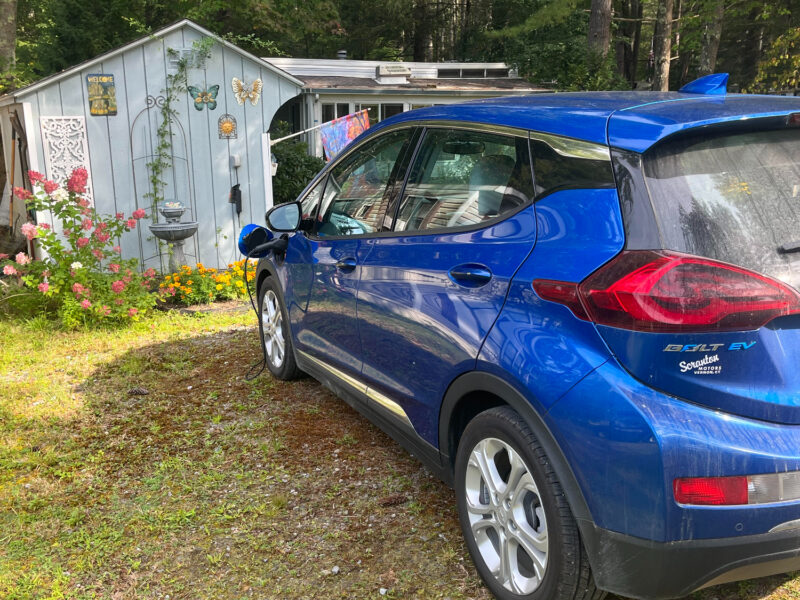- cross-posted to:
- technology@lemmit.online
- cross-posted to:
- technology@lemmit.online
Fear Mongering About Range Anxiety Has To Stop — CT Governor Calls Out EV Opponents::Several state governors are fighting fear mongering as they attempt to reduce transportation emissions in their states.



Just adding to that, what required maintenance can you do on an EV?
I can take care of most of the basics like fluid and brake pad changes on my IC car. On an EV tyres are a given, but is there specialised maintenance work that I can’t do myself?
There’s pretty much just tires, brakes, fluids. That’s it. That’s why they’re so great. Oh and your brakes last a lot longer because most of the braking is done with regen (think electric engine braking).
To expand, the only fluid that needs replacing is the washer fluid. There is no oil needed EVs, and most don’t have transmissions, they are direct drive from the motors. The oil in the motor doesn’t need to be changed because it’s a sealed system.
So that leaves brakes, which aren’t used nearly as much due to regenerative braking like you said. And of course tires because that’s just normal wear from use. And the cabin air filter every couple years.
EVs have less than half the parts of an ICE vehicle simply because most of the engine and transmission components just aren’t there. There is simply less there that can break or wear out.
Battery longevity will depend largely on the battery tech and quality the manufacturer uses, and how good their Battery Management System is. Batteries wear mostly due to high use and how you manage charging. Fast charging all the time will wear them faster than charging overnight at home for instance. I keep my Model 3 battery between 60-80% charge and that’s way more than I need for daily driving. When going on a trip I fully charge the night before and there are a ton of chargers on all the long distance trips I’ve made. It reroutes to account for busy chargers automatically and I rarely need to think about it.
Good points. One note I’ll make is tires. They can wear out faster simply because of how much torque the motor(s) give them. As with anything, if you have a lighter foot off the line then they’ll last longer. If you want that EV power to get out front at every stop then you’ll wear through them 2x as fast. Good news is that tire manufacturers are prototyping new everyday road tires made to handle higher torque for EVs.
Seems like at the very least it would require a different set of tools and knowledge. I can do pretty much everything down to completely tearing down and rebuilding an engine so replacing ball joints or suspension A-frames is easy for me, but I expect that sort of thing to be outside of most people’s knowledge. Even so, there’s quite a lot that anybody can do to maintain their current vehicle without needing any special knowledge they can’t learn in five minutes. What can we do ourselves on an EV to keep the batteries and motor in good running condition, and how would we even know that there’s a fault that needs addressed? I can’t imagine a cheap EV having a full range of sensors installed, and yet on an ICE you can easily hear or feel when something isn’t right with the engine.
Read the user manual that comes with your car, it explains that in great detail. There’s practically no maintenance to be done, anyway
They don’t really need them like ICE do. OBDII gives all the details on your battery that you could possibly want, there are cheapo sensors on the like 2 other failable parts
There’s simply a lot LESS to go wrong on an EV, maintenance is very different once you get one
That’s good to hear! I keep watching how things are progressing, some day we’ll all make the switch but at the moment I still need the capacity of an SUV to carry construction materials and the ability to tow my 20’ trailer with loads up to 6000 pounds. Somebody once told me that there’s no reason to own a personal vehicle when I can just ride a bicycle or take the bus everywhere, it took me awhile to stop laughing.